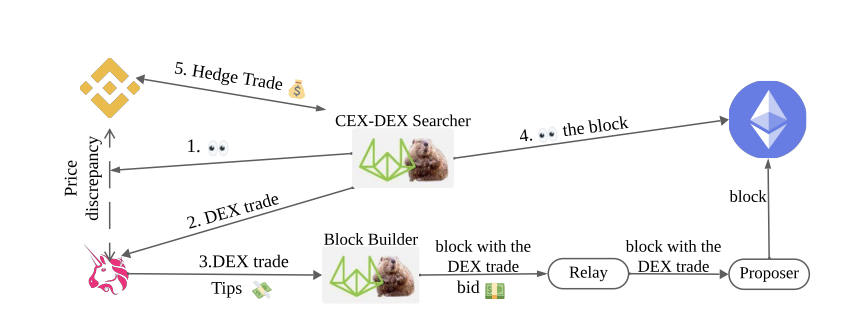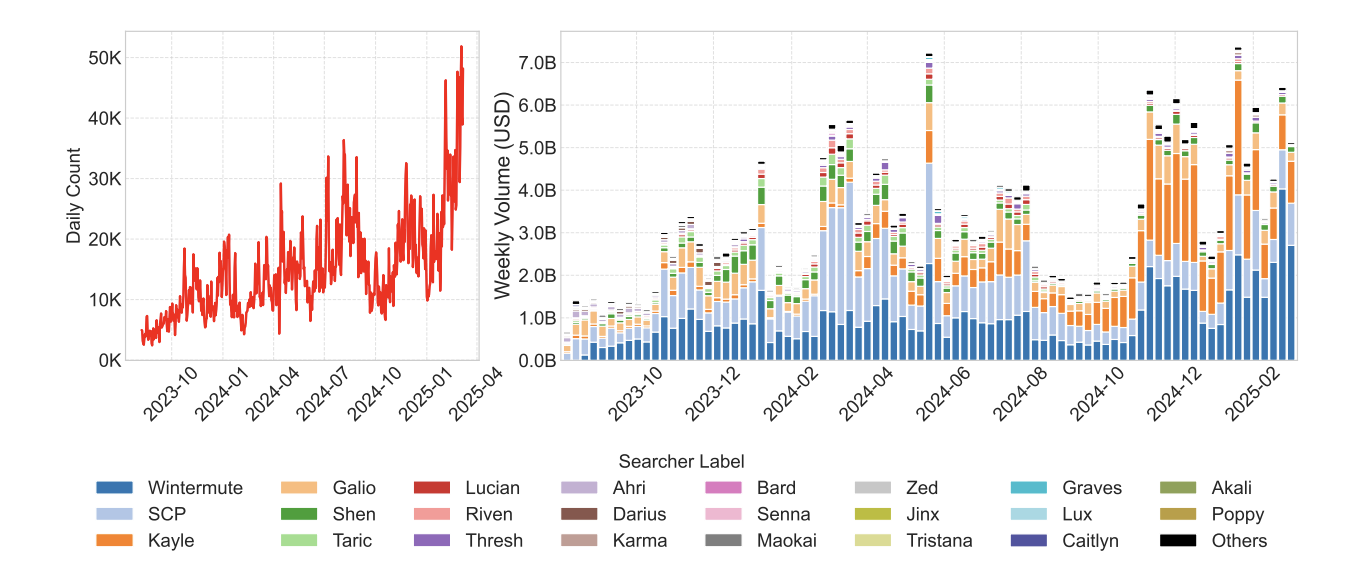Maximal-extractable price (MEV) on the Ethereum community is becoming more and more centralized, with arbitrageurs tightening their grip on transaction ordering.
In maintaining with a contemporary examine paper, these arbitrageurs, known as “searchers” within the paper, are more and more in-home or absorb distinctive contracts with maximal extractable price builders, who’re accountable for block construction on the Ethereum community.
MEV refers to the profit that blockchain validators or diversified participants can accumulate by reordering transactions internal a block sooner than it’s finalized. On Ethereum, MEV in general involves systems worship arbitrage, entrance-working, or sandwich attacks, where merchants exploit price variations to maximise gains.
The paper, titled “Measuring CEX-DEX Extracted Worth and Searcher Profitability: The Darkest of the MEV Darkish Wooded space,” regarded at how arbitrageurs shield shut profit of price discrepancies between centralized (CEX) and decentralized (DEX) crypto exchanges, entrance-working smaller customers.

“On the time of writing, three builders, beaverbuild, Titan, and rsync, dominate the Ethereum builder market, two of which vertically integrate their private CEX-DEX searchers,” the authors of the paper wrote. They continued:
“Such vertical integration raises well-known considerations for Ethereum’s decentralization and security: it fosters economies of scale that reinforce dominant avid gamers, permits monopoly pricing that causes proposer loss, and will increase vulnerability to censorship and commitment attacks.”
The researchers concluded that the centralization of CEX-DEX arbitrage by distinctive agreements with block builders exacerbates “centralization pressures” throughout the Ethereum ecosystem, and needs to be regarded as when planning the long bustle route and development of the layer-1 community.

Linked: Bros who tricked MEV bots with their private medication need to face trial, says settle
MEV: a perennial project for the Ethereum community
Below Ethereum’s Proposer-Builder Separation (PBS), block proposers can outsource the block construction to entities is believed as builders. This association used to be performed to promote censorship resistance.
Nonetheless, critics of PBS, alongside side the authors of the examine paper, roar that it centralizes the community and creates unfair market stipulations for smaller participants.
In March, pseudonymous Ethereum researcher Malik672 proposed that Ethereum block building should always quiet change into democratized, permitting thousands of participants to contribute to block building and relief community decentralization.
“With 80% of blocks currently proposed by true two entities. This compromises decentralization and equity,” the researchers wrote.
Ethereum co-founder Vitalik Buterin previously suggested mitigating MEV by building alternative infrastructure, alongside side crypto exchanges.
Buterin additionally acknowledged that MEV also can honest be minimized by ravenous MEV arbitrageurs from the onchain data they count on to study from advanced trades and transaction reordering.
Magazine: Proposed alternate also can save Ethereum from L2 ‘roadmap to hell’

